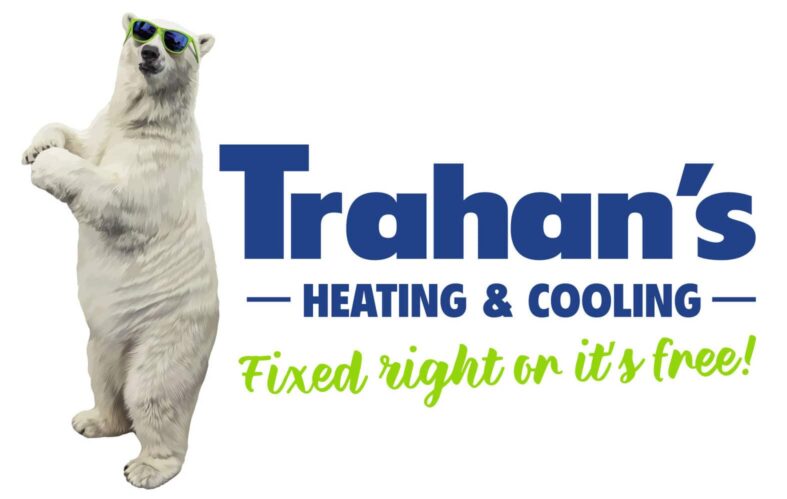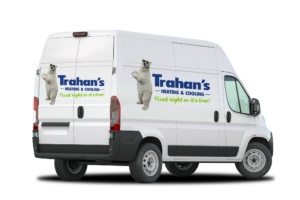With them, hurricanes bring broken windows, fallen trees and severe HVAC damage. In Houma, it’s currently mid-hurricane season, meaning that homeowners have to know all the necessary information to keep their units safe. Trust us, the last thing you need after a storm is AC repair or replacement. For this reason, Trahan’s Heating & Cooling has compiled a list of all there is to know about air conditioning maintenance and protection. This includes warning signs and actions to take before and after a storm.
HVAC Units And Severe Weather
Wind, thunder, rain and hail can potentially threaten outdoor HVAC units. Though designed to hold their own against severe weather, these units aren’t stormproof. This is especially true if your unit is located in areas predisposed to rising water.
Ensuring proper air conditioning maintenance prevents premature AC breakdowns and stops damage-based problems. Don’t worry though! You don’t have to do this alone — part of maintenance is understanding the signs that indicate an experienced HVAC technician is needed and what you can do to protect your unit.
Preparing Your HVAC Unit
Getting your system ready for a storm minimizes the extent of weather-related damage, reducing or eliminating hypothetical AC repair or replacement costs. If you don’t already have one, install or consider installing a surge protector to protect electrical devices from voltage spikes.
For protection against debris and water, cover your outdoor unit with a tarp. Furthermore, prevent debris from getting stuck by sweeping it away from the condenser unit. To keep the condenser unit stable, secure it with tie-down straps that won’t cause rusting. If you have a ducted system, clean the ducts to prevent the growth of mold and other microorganisms. Before the storm hits, reduce the risk of a power outage by turning off your AC at the thermostat and circuit breaker.
AC Warning Signs
Not Turning On
Power outages are never fun. Even though it seems like a victory when it comes back on, that doesn’t mean you’re out of the woods. Once they wear on internal components, electricity spikes can lead to HVAC unit damage. The circuit breaker, which protects systems by turning off power when overloaded, might have to be reset. If your unit still won’t start, you might require professional AC repair.
Not Cooling Homes Properly
Powerful wind can cause refrigerant lines, tubes carrying refrigerant between indoor evaporator coils and outdoor air conditioners, to leak. Never attempt to fix this problem yourself: turn off the unit and let a technician assess the situation.
Losing refrigerant makes it difficult to sufficiently cool homes, decreasing performance and efficiency while raising utility bills. Not to mention, refrigerant leaks are harmful, environmentally and health-wise. Trust us, none of these scenarios are fun, with the risks involved being the main reasons why this job is best left to the professionals.
Weird Noises
Thanks to strong winds, debris can get trapped in outdoor units and cause rattling or buzzing, indicating an increased strain on internal components. Is your AC designed for user maintenance? If so, great! Open the exterior housing and clean it. Screeching, however, means there’s severe HVAC damage: shut the unit off and call for services.
Pooling Water
Though water-resistant, outdoor units can’t survive long floods: they’re meant for land, not pools! Flooding often indicates condenser damage: if water accumulates around your condenser, minimize the chance of electrical shock by switching it off at the circuit breaker.
Actions After A Storm
Inspect Your AC For Damage
After a storm, check the outdoor unit and exterior electrical components for visible damage and remove debris such as dirt, leaves and sticks. If, during the process of preventative air conditioning maintenance, you covered your condenser with a tarp, take it off and allow the unit time to dry.
Review Homeowner’s Insurance Policy
Insurance policies might help cover AC units if they’re damaged by something listed within them. This coverage is a massive money saver, helping with Houma AC repair or replacing built-in equipment. To gain a full understanding of what is covered by your policy, contact your insurance provider. If and when a claim is filed, an adjuster will come over, evaluate the damage and calculate the cost of repairs, so you don’t have to!
Contact An HVAC Technician
Not all AC maintenance requires qualified technicians. However, keep in mind that severe weather can result in hidden damage, especially with electrical components, inevitably requiring a technician’s help.
Prevent AC Damage Today!
With hurricane season not even half over, it’s important to stay in the know about storm information and air conditioning maintenance. Carefully watch the weather, get prepared and take whatever steps necessary to stay safe!
Whether you are preparing for a storm or need repairs after one, contact Trahan’s Heating & Cooling and get help with your AC needs today.





